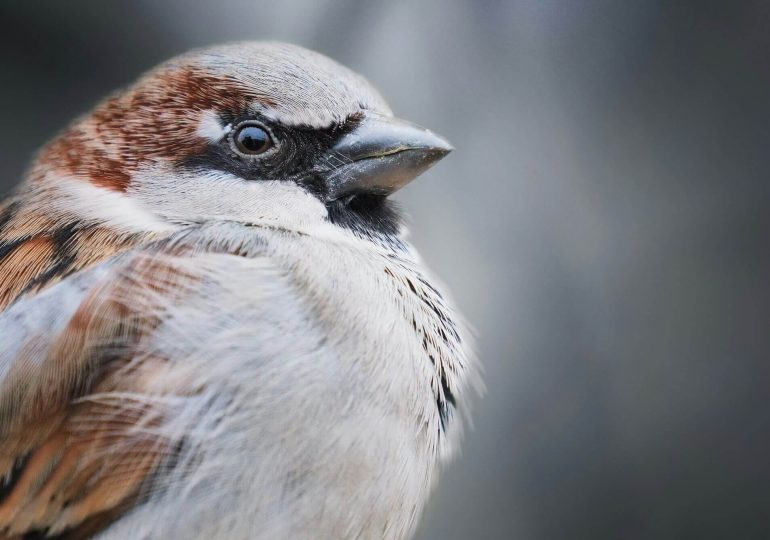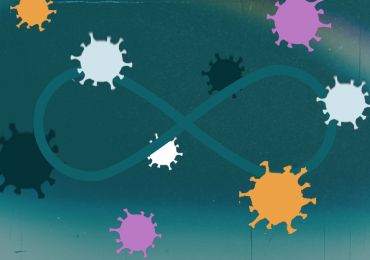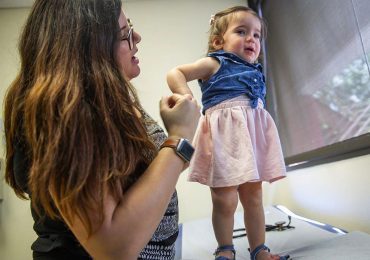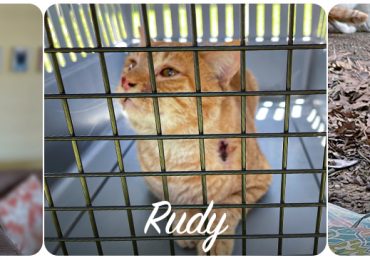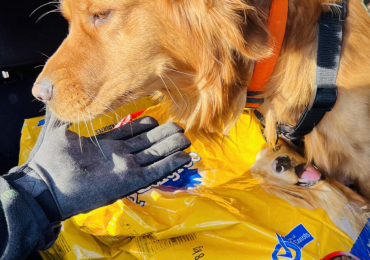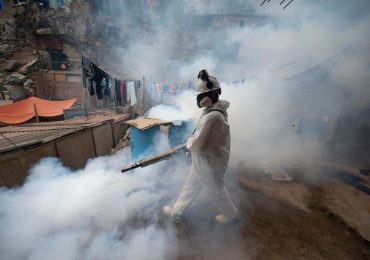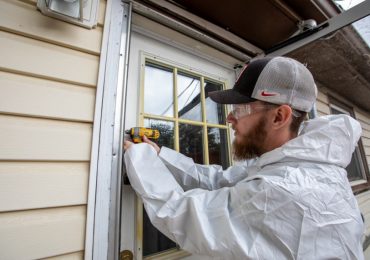Last July, thanks to the generous donor support of ACE’s Recommended Charity Fund, we were able to award $944,921 to our 2022 Recommended Charities, which included four Top Charities and 11 Standout Charities. Those organizations have updated us on how they’ve used their grant to help animals, and we’re excited to share their achievements.
By making a gift to our Recommended Charity Fund, you will support multiple impactful charities working around the globe to reduce animal suffering. Note that as of November 2023, ACE now conveniently recommends just one tier of charities: Recommended Charities. Much of the inspiring work outlined below would not be possible without the grants provided by this fund. Thank you!
Top Charity Updates
Wild Animal Initiative
$94,492.10 grant
Wild Animal Initiative’s research team:
Physiology Researcher Michaël Beaulieu published an original article in the journal Biological Reviews, highlighting how physiological markers can be used to assess the welfare of wild animals.
They worked on eight manuscripts to be submitted to peer-reviewed journals, covering the following topics:
Introducing contraception as a potential tool for wildlife welfare management
Comparing many different indicators of welfare
Evaluating the use of oxidative stress as an indicator of cumulative welfare
Evaluating the use of glucocorticoids (“stress hormones”) as indicators of recent welfare
Discussing the relationship between conservation biology and wild animal welfare science
Modeling the relationships between population density and welfare
Reviewing the use of bio-loggers to monitor wild animal welfare
Reviewing the state of the literature on fish welfare
They are refining fieldwork plans and how to interpret welfare markers from audio recordings for their field project studying house sparrows (Passer domesticus).
They published an expanded version of their Research Priorities.
Wild Animal Initiative’s outreach team:
They delivered a virtual workshop series reviewing current methods for measuring welfare, giving guidance on selecting and interpreting metrics, and helping participants develop ideas for adding welfare questions to existing projects. Workshop recordings will be available soon.
They attended the Animal Behavior Society conference, the International Society for Applied Ethology, the Ecological Society of America, the Association for the Study of Animal Behaviour, and the Student Conference on Conservation Science – New York.
They gave an interview on the How I Learned to Love Shrimp podcast, speaking about why people should care about wild animal suffering.
Wild Animal Initiative’s grants team:
They released two calls for proposals (CFPs): Seed Grants, which focuses on fish welfare and near-term interventions, and Challenge Grants CFP, which focuses on welfare impacts of parasitism and validating indicators of affective state/emotional valence.
They welcomed their first cohort of fellows in their Fellowship Program.
The Humane League
$94,492.10 grant
From July to December, The Humane League (THL) won new cage-free commitments from four companies, which will spare 2.5 million hens from cages annually. In addition, they held 25 companies accountable for their existing cage-free commitments, which will spare 28M hens each year.
Thanks to a relentless campaign by the Open Wing Alliance, Jollibee Foods Corporation, the largest restaurant group in Asia, pledged to go cage-free globally. This victory will spare roughly two million hens annually and helps build momentum in Asia, where approximately 68% of the world’s egg-laying hens live.
In October, THL published its Global Restaurant Report, revealing which restaurant chains have followed through on their cage-free commitments and which are falling behind. As a result of dialogue with THL, companies like Starbucks, Pizza Express, and Yum! Brands are reporting progress toward their goals. THL’s Global Restaurant Roast campaign, which demands progress from the companies falling behind, has already pressured Caffé Nero to report significant progress globally.
Thanks to outreach from negotiators at THL UK, major restaurants and food service providers, including KFC, Delaware North, and Subway, have reported progress on their commitments to end the abuse of chickens raised for meat. Already 28% of the U.K. chicken supply has adopted the Better Chicken Commitment.
In December, the Pittsburgh City Council passed a landmark bill banning the sale of foie gras within city limits. This is the biggest victory yet for THL’s Animal Policy Alliance (APA) and was spearheaded by Humane Action Pittsburgh, with support from THL. This victory provides proof for the APA’s theory of change, that they can build on the success of ordinances like Pittsburgh’s puppy mill ban, demanding the same compassion for farmed animals as pets and ultimately building capacity to advocate for increasingly ambitious and impactful asks in the future.
The Good Food Institute
$94,492.10 grant
The Good Food Institute (GFI) and their partners published several key analyses and reports, including:
The United Nations Environment Programme’s (UNEP) landmark report focusing on alternative proteins as a tool to slash food system emissions. GFI worked with UNEP on this report from its point of conception almost two years ago and supplied three co-authors and three co-reviewers. (Read GFI’s report summary).
An analysis of fermentation manufacturing capacity.
A sidestream analysis identifying commodity crop “waste” that can become inputs for alternative protein production.
A needs assessment on building an inclusive alternative protein workforce.
The first-ever State of the Industry Reports for India and APAC.
A food safety study for cell-cultured meat production in Brazil.
GFI welcomed 24 new student groups to the Alt Protein Project, bringing the total number of groups to 53. This new cohort adds representation from Switzerland, Turkey, Portugal, Brazil, Malaysia, and Japan.
Following engagement with GFI Europe, the U.K. Biotechnology and Biological Sciences Research Council and Innovate UK announced a five-year, £15 million investment for the development of an Alternative Proteins Innovation and Knowledge Center. The German Bundestag also committed to spending €38 million on protein transition in the country.
GFI APAC and the APAC Society for Cellular Agriculture launched the APAC Regulatory Coordination Forum. An MoU was signed aligning participating organizations around the goal of coordinating regulatory frameworks for novel foods. Signatories from Australia, China, India, Indonesia, Israel, Japan, Malaysia, Singapore, and South Korea are now unified in their mission to streamline approval processes and reduce alternative protein trade barriers across the region.
GFI India’s continued engagement with the Indian government led to the inclusion of alternative proteins as one of six key priorities for its Ministry of Science and Technology.
For full monthly highlights, please visit the following links: July, August, September, October, November, and December.
Faunalytics
$94,492.10 grant
Faunalytics published a new, in-depth analysis of industry costs for chicken, egg, and fish products in the U.S., Brazil, and China.
They completed a new report outlining the arguments jurors on the Smithfield pig rescue trial found most convincing and what lessons animal advocates can learn from the case.
They produced seven new Faunalytics Explains videos, summarizing research on everything from using AI to reduce human-animal conflicts to wild animal trafficking and more.
They published an intensive guide and fact sheet on legislative advocacy.
Over 550 researchers and advocates connected to share insights on the latest research and data at Faunalytics’ second annual online symposium, Fauna Connections.
Over 70 advocates and organizations received free one-on-one support through Faunalytics’ Office Hours program, where they help advocates find and apply data to their campaigns.
They contributed to a paper providing a roadmap for how animal advocates and social scientists can collaborate to ask the right questions and use research to guide their actions for animals.
Faunalytics published over 145 library articles, summarizing external studies on important topics in animal advocacy, 48 of which were translated into additional languages.
Faunalytics’ Research Ambassador project gave presentations to 14 organizations from across the world, reaching advocates in Australia, Czechia, Denmark, Latvia, and more. They also published impact results from the project’s first year.
They have eight studies in progress, which will be published in the first half of 2024. Read on to view their full 2023 Year In Review and 2024 Research Agenda.
Standout Charity Updates
xiaobuVEGAN
$51,541.15 grant
In July, xiaobuVEGAN achieved a significant milestone by successfully securing funds for the upcoming quarter. These funds are crucial in supporting their ongoing projects, events, and campaigns.
They successfully completed their second Vegan Debate video, engaging with over 50 social media influencers for roles in the debate. Their first Vegan Debate video received one million views, and they expect the second to receive two million.
xiaobuVEGAN surveyed the audience members at their second Vegan Debate before and after the debate. At least 30% shifted toward a pro-vegan stance by the end of the debate.
In October, xiaobuVEGAN presented at AFAD (Asia Farm Animal Day), an international gathering held in Malaysia for discussions and collaborations related to animal welfare and veganism.
In collaboration with partners in Shanghai, xiaobuVEGAN is working to develop and release new vegan menus in over 500 restaurants.
In November, xiaobuVEGAN promoted a vegan Thanksgiving event that sold out.
xiaobuVEGAN has developed a plan to organize five offline debates in 2024. These debates will delve into various vegan-related topics, furthering their mission to raise awareness and promote ethical choices.
They launched a website to facilitate the promotion of their work, expanding their reach to global audiences.
Sinergia Animal
$51,541.15 grant
Sinergia Animal helped secure 38 corporate policies to phase out the use of battery cages for laying hens, gestation crates for breeding sows, and different forms of mutilations in pigs. In 2023, 49 policies were secured, compared to 27 in 2022, an 81% increase.
Sinergia Animal’s Cage-Free Tracker Program, which monitors the progress of companies that have made cage-free egg commitments, showed significant improvement.
In Latin America, 50% of companies reported progress, compared to 35% in the previous year.
In Asia, 80% of companies reported progress, compared to 70% in 2022. The number of companies sharing specific information about implementation progress in Asia increased nearly three-fold, rising from eight companies in 2022 to 21 in 2023.
Nourishing Tomorrow, a program that encourages institutions to commit to serving only plant-based meals once a week, secured 17 new commitments in the second half of 2023. Over the entire year, 25 institutions committed, resulting in a remarkable potential of 1.9 million plant-based meals served—a threefold increase in the number of meals compared to 2022.
Sinergia Animal’s free course to raise awareness among healthcare and other professionals on the merits of a plant-based diet had around 4,000 participants in the second half of 2023. In the whole year, it gathered 6,900 participants, including 1,747 healthcare professionals, representing a threefold increase in participants compared to 2022.
More than 1,700 academics and other professionals working with animal agriculture participated in Sinergia Animal’s Latin American and Southeast Asian workshops on animal welfare.
Sinergia Animal released three groundbreaking undercover investigations into factory farming practices.
Read more achievements in Sinergia Animal’s 2023 progress report.
Mercy For Animals
$51,541.15 grant
On a global scale, Mercy For Animals (MFA) made progress on corporate outreach for better animal welfare standards.
In the U.S., Compass Group—Europe’s largest food service contractor—released a roadmap for fulfilling its chicken welfare commitment, which will impact around 70 million chickens each year. White Castle—with nearly 350 U.S. locations—reported progress on its commitment for the first time.
Two Brazilian companies, Special Dog and St. Marche, shared that they’d met their cage-free commitments. Special Dog converted its entire egg supply in just 10 months, a change that will spare more than 100,000 hens each year from life in a cruel cage.
After working with MFA, Mini Kalzone launched its first vegan calzone at 125 stores across 57 Brazilian cities.
MFA helped companies develop vegan menu options.
Stumptown, a Portland-based coffee company, launched a vegan breakfast sandwich and plant-based baked goods.
They worked with Starbucks and Caribou Coffee to boost plant-based drink options for about 16,000 U.S. Starbucks locations and nearly 500 Caribou locations.
They conducted eye-opening investigations.
A drone investigation revealed that in Wisconsin, manure pits at factory dairy farms contaminate the drinking water of nearby communities.
Just before Thanksgiving, MFA released undercover footage from two Minnesota turkey farms, which ran on two huge video billboards in New York’s Times Square.
MFA participated in December’s United Nations Climate Change Conference in Dubai to ensure that food systems were included in global climate-change actions. At this conference, food systems factored into a UN climate plan for the first time.
MFA is calling for a ban on the manufacture, sale, and use of gestation and farrowing crates for pigs across India. To date, 24 states or union territories (out of 28 states and eight union territories) have enacted crate bans.
Material Innovation Initiative
$51,541.15 grant
MII collaborated with six fashion conglomerates (>$172B annual revenue), providing them with sci-tech and innovation resources, consumer research, and connections to promising next-gen material partners.
MII consulted with New York’s government on developing its Fashion Innovation Center. They were also recruited to promote ethical fashion innovation opportunities at the Center.
MII is a key member of the NYC Material Procurement Task Force, which advises the City on the purchasing and disposal of textiles. NYC purchases vast quantities of materials, and MII helps it incorporate next-gen materials into everything from police and fire uniforms to public transit seats and furniture.
They published their What Makes Silk, Silk, Revisited report, which inspires scientists and entrepreneurs to develop humane and sustainable next-gen alternatives to silk.
They created the 2023 Brand Engagement Report, an inspiring lookbook of promising next-gen materials that brands have successfully incorporated into their product lines.
MII co-hosted two large screenings of the documentary SLAY in Los Angeles and New York to packed rooms, each of which was followed by a panel discussion. SLAY addresses the planetary impacts of the fashion industry and the harmful myths about the alleged benefits of animal-derived materials over synthetic alternatives. It is a great introduction to the importance of MII’s mission and has a powerful, hopeful message.
The BMW Foundation collaborated with MII in creating a report on the new materials market.
MII was featured prominently at Asia Farm Animal Day in Malaysia in multiple conference sessions and established partnerships with inspiring organizations that are working to improve the welfare of farmed animals in Asia.
Fish Welfare Initiative
$51,541.15 grant
Through water quality improvements made by their farmer program in India, Fish Welfare Initiative (FWI) estimates that they improved the lives of an additional 230,000 fishes in the second two quarters of 2023.
They increased the number of farms in their farmer program by about 20 farms. As of January 2024, FWI actively works with 105 fish farms to monitor water quality and promote higher welfare conditions. They also made various programmatic improvements to this program.
They completed an observational study on farms with low dissolved oxygen levels, which will be used to inform their future interventions.
They revamped their research department, now called their R&D Department, and set a new research agenda for 2024.
They submitted regulatory recommendations to the Animal Welfare Board of India and the Indian Department of Fisheries.
With their work in China, they supported the Beijing Consensus for Animal Welfare.
For more information on FWI’s key outcomes and challenges in 2023, see their 2023 in Review.
Dharma Voices for Animals
$51,541.15 grant
DVA’s Sri Lanka Project
In Sri Lanka, DVA gave 699 in-person presentations during the last six months in 2023, with a total of 51,587 attending.
They held a cooking competition in a Gampaha village with several hundred in attendance. Non-vegan cooks were encouraged to cook vegan food with cash prizes awarded, while villagers were inspired to try vegan food.
DVA’s Thailand Project
In Thailand, DVA started working with Bangkok International Vegan Alliance (BIVA) to create presentations targeted toward Thai monks and citizens.
Their Project Director, Coach Bank, reached a 100-presentation milestone and held five cooking classes at local Buddhist temples.
DVA’s Vietnam Project
In Vietnam, DVA co-sponsored the Vive’s Saigon and the Hanoi VegFests, dramatically increasing followers on social media and distributing over 1000 brochures to promote vegan diets.
DVA Vietnam sponsored 14 vegan cooking classes in temples and provided meals to thousands of people.
They held multiple cooking classes and events at DVA’s kitchen in Phap Van temple.
After mentoring a former dog meat restaurant owner to transition to a vegan restaurant, DVA held a two-day fundraising event at the financially challenged restaurant, featuring a vegan cooking class, free food, and social media support.
DVA’s U.S. Centers Project
In the U.S., DVA hired a City Coordinator to start networking and building relationships with Buddhist Centers in the San Francisco Bay Area and help transition these Centers to plant-based diets.
DVA established a new relationship with an environmental engineer and researcher, who was featured on their Speaker Series online event and will begin giving environmental talks to various eco-conscious Centers around the U.S.
Dansk Vegetarisk Forening
$51,541.15 grant
The Danish government’s Action Plan for Plant-Based Foods, which Dansk Vegetarisk Forening (DVF) influenced significantly over the last few years, was published in October 2023. DVF has worked strategically to spread the story internationally, emphasizing what they see as key narratives that could benefit plant-based development in other countries. International coverage includes articles by BBC, Forbes, and Financial Times, as well as multiple smaller specialized news outlets.
DVF influenced the Danish government to allocate an additional five million euros for plant-based research.
DVF’s landmark lawsuit against pork giant Danish Crown—who is accused misleading consumers when branding their pork as “climate-controlled”—was heard in the high court over six days in November and December 2023. Several national media outlets provided daily coverage of the case.
Through their Center for a Plant-Based and Organic Future, DVF has developed relationships with several organizations working within the food system. They have spent time preparing multiple joint applications with other key stakeholders, which were then sent to Denmark’s newly established Plant-Based Food Grant. Six of the projects were granted to start in 2024, including:
A project on developing recipes for hospitals and elderly people, in collaboration with the Technical University of Denmark.
A project on promoting plant-based food at conference centers, in collaboration with MeetDenmark.
A project with a target of getting 100 educational institutions to make strategic plans for the food they serve, in collaboration with a sustainability network for educational institutions.
Their RCF grant enabled them to provide four staff members with professional leadership coaching.
Compassion in World Farming USA
$51,541.15 grant
Compassion in World Farming USA (CIWF USA) marched to the United Nations during Climate Week, installed artwork in Washington Square Park calling out the need to address food and farming practices, and released a new report that concluded the U.S. must reduce meat consumption by 82% to align with planetary health goals.
The culmination of years of negotiations resulted in an acknowledgment of the critical role food systems play in climate action at this year’s COP28. CIWF organized a Food4Climate Pavilion with partners and participated in events focused on food systems.
CIWF has been negotiating with state WIC agencies to make cage-free eggs an option for clients. Recently, Alaska became the 31st state to add cage-free eggs, giving 71% of WIC participants (roughly 4.4 million people) access.
EggTrack 2023 illustrates the progress of 147 U.S. cage-free commitments for laying hens, with a 73% average transition to cage-free. Three major companies—The Kraft Heinz Company, CVS, and Walgreens— have gone 100% cage-free, while most national retailers (Target, Walmart, Albertsons, and H-E-B) have committed to be cage-free by 2025.
On World Octopus Day, CIWF coordinated a joint letter, signed by NGOs and experts, urging them to reject a planning application from Nueva Pescanova, seeking permission to build an octopus farm. It shows how the farm would cause animal cruelty, lead to environmental damage, and negatively affect tourism.
Here’s to 10 years of Compassion in the U.S.! CIWF Inc. was established in the U.S. in 2014, exporting the mission of the world’s oldest farmed animal welfare organization to the country that invented factory farming. Over the past 10 years, CIWF USA has worked for more humane conditions for farmed animals while fighting to end factory farming.
Çiftlik Hayvanlarını Koruma Derneği
$51,541.15 grant
ÇHKD’s fish welfare program, Future for Fish, published a research report about farmed fish production in Turkey, covering 70% to 80% of the country’s fish production output. The results were shared with industry professionals and animal advocates at the program’s launch event in İzmir in November 2023.
Future for Fish secured a fish welfare commitment from a large producer in Turkey, impacting more than 30 million fish.
Three companies reached out by Kafessiz Türkiye (the cage-free program of ÇHKD) have made cage-free commitments. One of the companies is Arabica Coffee House, which has more than 100 branches in Turkey. The commitments in total are estimated to impact 24,000 hens.
Six companies have reported fulfilling their cage-free commitments, including a large retailer (Macrocenter), a restaurant chain (Pidem), and a hospitality business of Istanbul Metropolitan Municipality (BELTUR). Metro Türkiye also stopped selling caged eggs in its own brand.
So far, Kafessiz Türkiye’s Migros campaign has reached 140,000 signatures and accrued more than 16,000 digital actions. Kafessiz Türkiye’s Instagram followers also increased by 40%.
ÇHKD and its programs are mentioned in 155 media pieces published by national, local, and industry-specific publications.
Kafessiz Türkiye published its annual Egg Track Report for Turkey, which reveals the cage-free status of leading companies in relevant industries. The report attracted 118 media mentions.
ÇHKD organized two online training events: one focused on animal ethics, and the other on effective advocacy methods. With these two events added to its portfolio, ÇHKD trained 1,000 people in 2023.
ÇHKD welcomed two interns through its internship program this summer. They also hired a new corporate outreach specialist and a finance and accounting specialist.
If you are inspired by these achievements, please donate to support ACE’s Recommended Charity Fund. Your gift today will help reduce future animal suffering. Thank you!
SUPPORT THE RECOMMENDED CHARITY FUND
The post Recommended Charity Fund: January 2024 Update appeared first on the Animal Charity Evaluators blog.
Leave a comment

